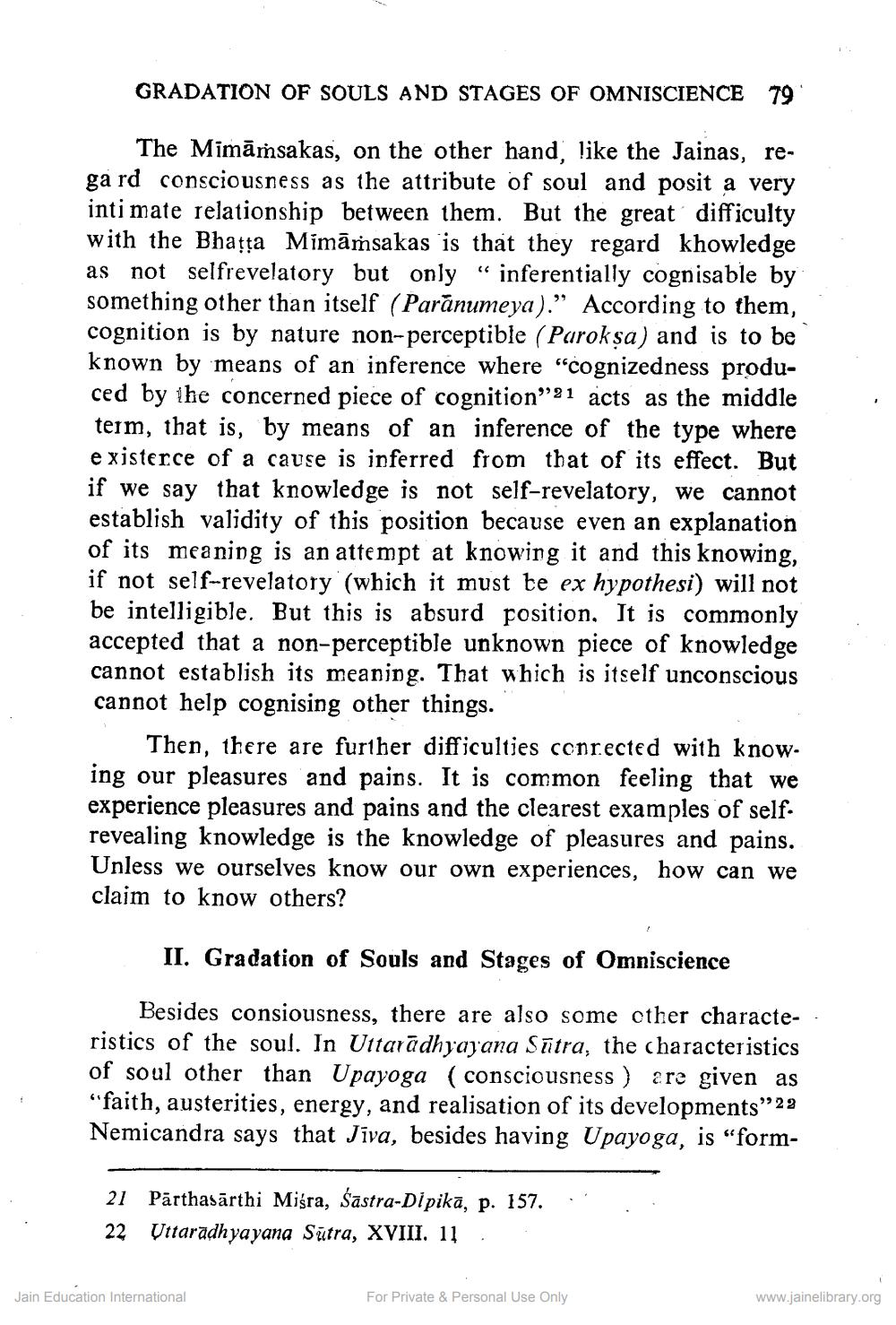________________
GRADATION OF SOULS AND STAGES OF OMNISCIENCE 79
The Mimāṁsakas, on the other hand, like the Jainas, rega rd consciousness as the attribute of soul and posit a very intimate relationship between them. But the great difficulty with the Bhatta Mimāṁsakas is that they regard khowledge as not selfrevelatory but only " inferentially cognisable by something other than itself (Parānumeya).” According to them, cognition is by nature non-perceptible (Paroksa) and is to be known by means of an inference where “cognizedness produced by the concerned piece of cognition”21 acts as the middle term, that is, by means of an inference of the type where existerce of a cause is inferred from that of its effect. But if we say that knowledge is not self-revelatory, we cannot establish validity of this position because even an explanation of its meaning is an attempt at knowing it and this knowing, if not self-revelatory (which it must be ex hypothesi) will not be intelligible. But this is absurd position. It is commonly accepted that a non-perceptible unknown piece of knowledge cannot establish its meaning. That which is itself unconscious cannot help cognising other things.
Then, there are further difficulties conrected with knowing our pleasures and pains. It is common feeling that we experience pleasures and pains and the clearest examples of self. revealing knowledge is the knowledge of pleasures and pains. Unless we ourselves know our own experiences, how can we claim to know others?
II. Gradation of Souls and Stages of Omniscience
Besides consiousness, there are also some other characte-. ristics of the soul. In Uttarādhyayana Sūtra, the characteristics of soul other than Upayoga (consciousness ) are given as "faith, austerities, energy, and realisation of its developments”22 Nemicandra says that Jiva, besides having Upayoga, is "form
21 Pārthasārthi Mišra, śāstra-Dipikā, p. 157.. 22 Uttaradhyayana Sutra, XVIII. 11.
Jain Education International
For Private & Personal Use Only
www.jainelibrary.org




